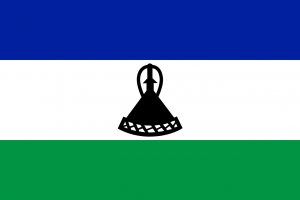Language/Southern-sotho/Grammar/Noun-Classes
| ◀️ Introducing Oneself — Previous Lesson | Next Lesson — Personal Pronouns ▶️ |
Introduction
In this lesson, we will discuss Southern Sotho noun classes. Nouns are classified into different categories or classes based on their meaning and are grouped together with other nouns which share similar prefixes. Each noun class corresponds with a unique set of prefixes for the singular and plural forms. Understanding noun classes is vital to mastering Southern Sotho grammar.
Noun Classes
Southern Sotho has different noun classes, and the plural form of each noun can take on many different forms depending on the noun class. It is essential to learn the singular and plural form of each noun class.
Class 1
Nouns in class 1 have the prefix "mo-" in the singular form and "ba-" in the plural form. This class includes people, animals, and some plants.
| Southern Sotho | Pronunciation | English |
|---|---|---|
| mosadi | mo-sa-di | woman |
| motho | mo-tho | person |
| mokgonyana | mo-kgon-ya-na | bird |
| moo | mo-o | cow |
| bana | ba-na | children |
| batho | ba-tho | people |
Class 2
Class 2 nouns have the prefix "ba-" in the singular form and "ma-" in the plural form. This class is mainly composed of people.
| Southern Sotho | Pronunciation | English |
|---|---|---|
| banna | ba-nna | men |
| basadi | ba-sa-di | women |
| batjha | ba-tjha | boys |
| bagolo | ba-golo | elders |
| bakwena | ba-kwe-na | relatives |
Class 3
Nouns in class 3 have the prefix "mo-" in the singular form and "mi-" in the plural form. This class generally includes objects and animals.
| Southern Sotho | Pronunciation | English |
|---|---|---|
| mokete | mo-ke-te | spoon |
| mosu | mo-su | knife |
| molomo | mo-lo-mo | mouth |
| mihapi | mi-ha-pi | horses |
| midumo | mi-du-mo | lions |
Class 4
Class 4 consists of nouns that have the prefix "le-" in the singular form and "ma-" in the plural form. This class typically includes small objects, plants, and body parts.
| Southern Sotho | Pronunciation | English |
|---|---|---|
| lefu | le-fu | grass |
| leemane | lee-ma-ne | tree |
| letsatsi | let-sat-si | day |
| maso | ma-so | eyes |
| masapo | ma-sa-po | fingers |
Class 5
Class 5 nouns have the prefix "se-" in the singular form and "di-" in the plural form. This class includes gerunds, infinitives, and some mass nouns.
| Southern Sotho | Pronunciation | English |
|---|---|---|
| seboko | se-bo-ko | singing |
| semo | se-mo | eating |
| seriti | se-ri-ti | milk |
| ditau | di-tau | nails |
| ditho | di-tho | smoke |
Class 6
Class 6 has the prefix "me-" in the singular form and "ma-" in the plural form. This class includes mountains, rivers, and some plants.
| Southern Sotho | Pronunciation | English |
|---|---|---|
| metse | me-tse | trees |
| mebala | me-ba-la | mountains |
| meriting | me-ri-ting | stones |
| madikgetho | ma-di-kge-tho | rivers |
| makhelwane | ma-khe-lwa-ne | neighbors |
Class 7
Class 7 has the prefix "go-" in the singular form and "go-" in the plural form. This class includes abstract concepts, events, and phenomena.
| Southern Sotho | Pronunciation | English |
|---|---|---|
| go hloba | go-hlo-ba | dancing |
| go bona | go-bo-na | seeing |
| go nna | go-nna | being |
| go leboga | go-le-bo-ga | thanking |
| go bonolo | go-bo-no-lo | truth |
Class 8
Class 8 includes a wide range of miscellaneous nouns. There is diversity among the nouns in this class, making it challenging to generalize the prefix forms.
| Southern Sotho | Pronunciation | English |
|---|---|---|
| setlamo | se-tla-mo | plan |
| maitseo | mai-tseo | surname |
| selili | se-li-li | spoon |
| lipalesa | li-pa-le-sa | police |
Conclusion
In this lesson, we discussed the different noun classes in Southern Sotho. Understanding noun classes and their associated prefixes is imperative when learning how to use nouns within a sentence. In the next lesson, we will continue discussing pronouns, including the various forms and how to use them.
Other Lessons
- Conditional Mood
- How to Use Have
- Describing Verbs
- Describing Nouns
- Basic Sentence Structure
- Negation
- Personal Pronouns
- 0 to A1 Course
- Pronouns
| ◀️ Introducing Oneself — Previous Lesson | Next Lesson — Personal Pronouns ▶️ |

